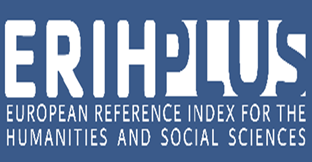Manuscripts of Qādir ʿAli beg’s historical work Jāmiʿ at-Tawārīkh ‘Compendium of Chronicles
Views: 296 / PDF downloads: 685
DOI:
https://doi.org/10.32523/2664-5157-2022-2-96-115Keywords:
Qādir ʿAli beg, Jāmiʿ at-Tawārīkh ‘Compendium of Chronicles’, St. Petersburg manuscript, Kazan manuscript, the first London manuscript, the second London manuscript, Qādir ʿAli beg’s unconfirmed manuscriptsAbstract
Jāmiʿ at-Tawārīkh ‘Compendium of Chronicles’ is the Qādir ʿAli beg’s historical work
written in 1602. The primary source of this work more likely did not reach our days. However, today two
lists (St. Petersburg manuscript and Kazan manuscript), three fragments (a fragment from Kyshgary, a
fragment from the first London manuscript, and a fragment from the second London manuscript), and
two more manuscripts (Paris manuscript and Berlin manuscript) are known as related to the Qādir ʿAli
beg’s ‘Compendium of Chronicles’, although the authorship of the last two manuscripts is questionable.
The article analyses all currently known lists and fragments of Qādir ʿAli beg’s work. The study did
not identify major textological discrepancies among the two lists and three fragments except for some
minor differences in spelling. The two lists complement each other and most probably were copied
from the same source. The fragments of the work do not carry any additional information from the
one present in the lists; hence, they do not carry any textological value. However, the fragments are
important evidence of the significance of Qādir ʿAli beg’s work. The location of London manuscripts
is of particular interest, raising the question of the appearance of two fragments that are found in the
‘Compendium of Chronicles’ in Britain. A feature of the London manuscripts is the presence in the text
of postscripts from the margins of the St. Petersburg manuscript, presented as a concordance of words.
Downloads
Reference
Berezin I. Tatarskii letopisets, Sovremennik Borisa Fedorovicha Godunova [Tatar Chronicler, Contemporary of Boris Fedorovich Godunov]. In: Moskvitynin [Muscovite]. no. 24. Book 2, 1851. P. 543-554. [in Russian].
Rahim А. Tarihi-dokumental’, ädäbi häm biografik zhïentïk [History-documentary, literary and biographic collection]. Kazan, Zhien, 2008. 480 p. [in Tatar and Russian].
Usmanov M.A. Tatarskie istoricheskie istochniki XVII-XVIII vv. [Tatar Historacal Sources of the 17th-18th centuries]. Kazan, Universitet. Publ., 1972. 223 p. [in Russian].
Syzdykova R. Yazyk “Zhamiʿ at-Tawarikh” Zhalairi [Language of Zhalairi’s ‘Zhamiʿ at-tawarikh’]. Alma-Ata, Nauka, 1989. 243 p. [in Russian].
Hofman H.F. Turkish Literature: A Bio-Bibliographical Survey: Section III. Part 1. – Vol. 5. Utrecht, The Library of the University of Utrecht, 1969. 305 p.
Alimov R. Kadir Ali bek’in Cāmiʿ at-Tavārīḫ’i ve bu eserin Londra (I) nüshası [Qādir Ali beg’s Jāmiʿ at-Tavārīḫ and the London (I) copy of this work], Turkish Studies Çekirge budu festschrift in honor of Robert Dankoff, 2015. – V. 44. Harvard University, Department of Near Eastern Languages and Civilizations. P. 61–83. [in Turkish and Turkic].
Alimov R. O dvuh novyh sochineniyah Kadyr Ali-beka [About two new copies of the composition of Kadyr Ali-bek]. In: Russian Turkology, 2(15). 2016. P. 40–48. [in Russian].
Alimov R. Nekotorye zametki otnositel’no Kadyr Ali-beka i ego sochineniya “Jami at-Tavarih” [Some notes on Qadyr Ali-bek and his work “Jami at-Tavarih”]. In: Materialy vtoroy nauchnoy konferencii srednevekovoy istorii Desht-I Kypchak [Materials of the second scientific conference of the medieval history of Desht-i Kypchak]. Pavlodar. P. 251-258. [in Russian].
Nagamine H. Esche raz o sochinenii Qadir Ali Bega (“Jami at-tavarikh”/Sbornik letopisei) [Rethinking Qādir ‘Ali Beg’s Historiography (Jāmiʿ al-Tavārikh)]. In: Zolotoordynskoe obozrenie [Golden Horde Review]. – V. 7, no. 1. 2019. P. 115-130. [in Russian].
Blagova G.F. TURKS. Chakataj – RUSSK. Chagatai-djagatai- (Opyt sravnitel’nogo izucheniya starogo zaimstvovaniya) [TURKIC Chaqataj – RUSSIAN Chagatay-djagatay- (Experience of comparative study of old borrowing)]. In: Turkological collection. Moscow, Nauka, 1972. 167-205. [in Russian].
Eckmann J. Chagatay Manual. Indiana University, 1966. 203 p.
Kincses-Nagy É. Mongolic Copies in Chaghatay (Turcologica 115). Wiesbaden, Harrassowitz Verlag, 2018. 292 p.
Péri B. Notes on the Literary-Linguistic Term “Čaġatay”: Evaluating the Evidence Supplied by Native Sources. Altaica Budapestinensia MMII. Proceedings of the 45th Permanent International Altaistic Conference (PIAC). Budapest, June 23-28, 2002. Budapest. 2003. P. 248-255.
Bartold V.V. Raboty po istorii islama i arabskogo halifata [Works on the history of Islam and the Arab Caliphate]. – V. 6. Moscow, Nauka, 1966. 779 p. [in Russian].
Zaatov I. Krymskotatarskaya istoriya i «Jami at-tawarih» Jalayiri v tvorchestve Chokana Valikhanova [Crimean Tatar history and Jalayiri’s “Jami at-tawarih” in the work of Chokan Valokhanov]. In: Crimean Historical Review. Kazan – Bakhchysarai, 1, 2015. P. 232–244. [in Russian].
Berezin I. Biblioteka vostochnykh istorikov. Sbornik letopisei. Tatarskii tekst s russkim predisloviem [Library of Oriental Historians. “Compendium of Chronicles”. Tatar Text with Russian Preface]. – Vol. 2. Part. I. Kazan, Tip. Gubernskogo pravleniya, 1854. VII. 171 p. [in Russian and Turkic].
Ivanics M., Usmanov M.A. Das Buch der Dschingis-Legende (Däftär-i Čingiz-nāmä). I. (Vorwort, Einführung, Transkription, Wörterbuch, Faksimiles) (Studia uralo-altaica 44). Szeged, Dept. of Altaic Studies, University of Szeged, 2002. 324 p. [in German and Turkic].
Rieu Ch. Catalogue of the Turkish Manuscripts in the British Library. London, The British Library, 1888. 345 p.
Desmaisons Petr I. Histoire des Mongols et des Tatares par Aboul-Ghazi Behadour Khan: Souverain de Kharezm et Historien Djaghatai 1603-1664 A.D. St. Leonards: Ad Orientem LTD. Amsterdam, Philo Press, 1970. 386 p. [in French and Turkic].
Johanson L. Turkic. Cambridge University Press, 2021. 1063 p.
Berezin I. Biblioteka vostochnykh istorikov. Istoriya Abul’-Gazi. [Library of Oriental Historians. The history of Abu’l-Gazi]. – Vol. 3. Part. 1. Kazan, Tip. Gubernskogo pravleniya, 1854. XVIII. 130 p. [In Russian].
Zajcev I.V. Zapadnoe hristianstvo na vostochnom rubezhe rossiyskoy imperii (Iz nepravoslavnyh hristianskih missiy sredi rossiyskih musul’man: katolicheskaya i presviterianskaya missiya v Astrahani v XVIII-XIX vv.) [Western Christianity on the Eastern Frontier of the Russian Empire (From the history of non-Orthodox Christian missions among Russian Muslims: The Catholic and Presbyterian mission in Astrakhan in the 18th-19th centuries)]. In: Religii mira: istoriya i sovremennost’ [Religions of the world: history and modernity]. Moscow, Nauka, 2007. P. 145-168. [in Russian].
Zajcev I.V. Arabskiye, persidskiye i tyurkskiye rukopisi iz Haji-Tarhana(Astrahani). Russkaya Astrahan’ kak centr perepiski rukopisey [Arabic, Persian and Turkic manuscripts from Khadzhi-Tarkhan(Astrakhan). Russian Astrakhan as a center for the correspondence of manuscripts]. In: Mir Islama [World of Islam]. Pax Islamica. (3)2, 2009. P. 206-211. [in Russian].
Blochet E. Catalogue des Manuscrits Turc. Tome II. Suplément nos 573-1419. Paris, Bibliothèque nationale, 1933. 314 p. [in French].
DeWeese D. Islamization and native religion in the Golden Horde: Baba Tükles and conversation to Islam in historical and epic tradition. Pennsylvania, The Pennsylvania State University Press, 1994. 638 p.
Frank A.J. Islamic historiography and ‘Bulghar’ identity among the Tatars and Bashkirs of Russia. Boston – Köln, Brill, 1998. VIII. 232 p.
Downloads
Published
How to Cite
Issue
Section
License
Copyright (c) 2022 Turkic Studies Journals

This work is licensed under a Creative Commons Attribution-NonCommercial 4.0 International License.
























